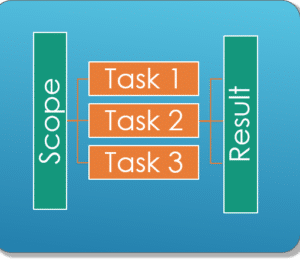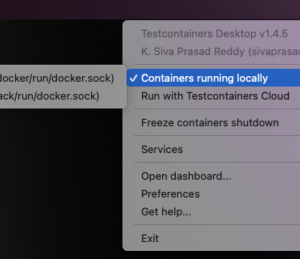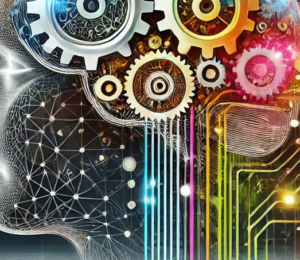JC-AI Newsletter #2
- August 05, 2025
- 7924 Unique Views
- 4 min read
- In the first newsletter, we introduced a 14-day cadence, which means that this week it's time for a new collection of articles from the fields of AI, LLM, Java and more.
- article: OpenAI CEO Sam Altman warns of an AI ‘fraud crisis’
- article: Are AI models ‘woke’? The answer isn’t so simple
- article: A.I. May Pass ‘Humanity’s Last Exam Within the Next 9 Months, Scientists Say
- article: The Godfather of AI Says The END is Near?!
- article: AI For Busy Java Developers
- article: AI As Normal Technology
- article: Amazon AI Coding Revealed a Dirty Little Secret
- article: Humanity’s Last Exam
- article: LLMs Will Always Hallucinate, and We Need to Live With This
- article: Delving into LLM-assisted writing in biomedical publication through excess vocabulary
- article: ChatGPT for Java: A Hands-on Developer's Guide to ChatGPT and Open AI APIs
- article: Foundations of AI and Machine Learning for Java Developers
- article: Beyond Snippet Assistance: A Workflow-Centric Framework for End-to-End AI-Driven Code Generation
In the first newsletter, we introduced a 14-day cadence, which means that this week it's time for a new collection of articles from the fields of AI, LLM, Java and more.
The JC-AI Newsletter Vol.2 brings again a very interesting collection of articles worth considering.
The world influenced by LLM is changing very quickly, let's start...
article: OpenAI CEO Sam Altman warns of an AI ‘fraud crisis’
author: Clare Duffy, CNN
date: 2025-07-22
desc.: Sam Altman discusses the serious potential for current AI abuse. Although the example of attacks on financial institutions is mentioned, Sam Altman warns of the broader impact before one even takes advantage of LLM agent systems.
article: Are AI models ‘woke’? The answer isn’t so simple
authors: Lisa Eadicicco, CNN
date: 2025-07-24
desc.: The US administration has announced an action plan for artificial intelligence, which consists of two main points. The agent system should be “truth-seeking” and “ideologically neutral.” The plan has sparked much discussion about its real impact and execution.
article: A.I. May Pass ‘Humanity’s Last Exam Within the Next 9 Months, Scientists Say
authors: Elizabeth Rayne
date: 2025-03-19
desc.: The article evaluates the expansion of AI agent systems and their response accuracy (currently 3-14%). Future developments in the field of AI are discussed in relation to the HLE (Humanity's Last Exam) benchmark.
article: The Godfather of AI Says The END is Near?!
authors: AI Copium
date: 2025-06-20
desc.: A discussion with Geoffrey Hinton on the impact of using agent systems and their inevitable impact on society. While Hinton mentions very likely suboptimal scenarios, he lacks an answer on how to avoid them, while also urging action to prevent abuse. From his perspective, the future is not bright, but humanity might still have a chance. Note special attention time: 14:30
article: AI For Busy Java Developers
authors: Frank Greco
date: 2025-03-18
desc.: Presented by Frank Greco (NYJavaSIG Chair) at JavaOne 2025 (March 18, 2025). AI (both GenAI and PredAI) offers exciting opportunities to boost productivity, but also raises concerns for developers and enterprises. This session will cover AI/ML fundamentals, compare GenAI and PredAI, JSR #381 VisRec, prompt strategies, APIs, chatbot architecture, vector databases, and RAG strategies. The target audience is beginners and early intermediate Java developers.
article: AI As Normal Technology
authors: Arvind Narayanan, Sayash Kapoor
date: 2025-04-15
desc.: Paper that describes AI as a “normal” technology. It is a realistic view that stands in contrast to the opinion of AI as an impending superintelligence.
article: Amazon AI Coding Revealed a Dirty Little Secret
authors: Parmy Olson
date: 2025-07-29
desc.: AI coding tools are transforming development by accelerating code generation, but they come with serious risks. A hacker recently manipulated Amazon’s AI plugin by submitting a malicious prompt through a public GitHub update, causing it to wipe user files. This exposes a growing threat where attackers use natural language, not just code, to exploit systems. As AI adoption grows, many teams lack visibility into where and how it's used, leaving security gaps. Without human oversight, these tools can introduce hidden vulnerabilities that put your code and users at risk.
article: Humanity’s Last Exam
authors: Center for AI Safety, Scale AI, and many authors
date: 2025-04-19
desc.: The article presents the Humanity's Last Test (HLE), a multimodal benchmark at the frontier of human cognition, as standard tests do not deliver meaningful evaluation of AI agentic systems based on LLM.
article: LLMs Will Always Hallucinate, and We Need to Live With This
authors: Sourav Banerjee, Ayushi Agarwal, Saloni Singla
date: 2024-09-09
desc.: The article proposes a careful evaluation of LLM models while providing a detailed mathematical foundation including error mitigation options (fine tuning, LoRa, RAG, ANN, etc.). The article describes how input data is processed by LLM models at each stage, along with a discussion of the different approaches.
The term “structural hallucination” is introduced, contextualized, and fully explained how such a false, fabricated result is produced using the previously described mathematical foundation.
The article discusses in detail the approaches and effectiveness of “hallucination” mitigation strategies while providing the mathematical facts that "structural hallucinations" themselves are a property of the LLM model. The article suggests that while LLM models have the potential to significantly aid human progress and development, LLMs should be used responsibly.
article: Delving into LLM-assisted writing in biomedical publication through excess vocabulary
authors: Dmitry Kobak, Rita Gozlez-Marques, Emoke-Agnes Horvat, Jan Lause
date: 2025-06-02
desc.: The paper presents the impact of LLM-assisted writing in biomedical research over the long term (2013-2024). Each article over this time horizon is analyzed using three approaches (LLM detectors, word frequencies in corpora, marker words overused by LLM). The result suggests that at least 13.4% of the total number of articles were processed using LLM in 2024. A detailed analysis suggests that this percentage may exceed 40% in some journals, which has a greater impact compared to the COVID pandemic.
article: ChatGPT for Java: A Hands-on Developer's Guide to ChatGPT and Open AI APIs
authors: Bruce Hopkins
date: 2024-02-28
desc.: A book that specifically covers the OpenAI APIs. Targeted for beginning and intermediate Java developers who have a basic understanding of Java programming concepts and are interested in learning how to add intelligence to their applications by using ChatGPT programmatically.
article: Foundations of AI and Machine Learning for Java Developers
authors: Frank Greco
date: 2025-01-15
desc.: This 90-minute LinkedIn Learning course explores artificial intelligence (AI) and machine learning (ML) from a Java developer’s perspective. It begins with the fundamental principles of AI/ML and the significance of patterns. Learn how to differentiate between AI, ML, and deep learning, and clearly understand the differences between predictive AI and generative AI. This course is designed for beginners, providing an introduction to building a solid foundation for effectively using ML in your software development projects and processes.
article: Beyond Snippet Assistance: A Workflow-Centric Framework for End-to-End AI-Driven Code Generation
authors: Vladimir Sonkin, Cătălin Tudos
date: 2025-01-29
desc.: This article introduces the Java Artificial Intelligence Generator (JAIG), a structured application development workflow that attempts to enhance upon current LLM capabilities with the goal of improving the correctness of source code generation. The article describes the theoretical background of the JAIG approach, focusing on the LLM agents GitHub Copilot and Cursor. It discusses the importance of requirements during lowering human intervention.
Enjoy reading and look forward to the next one!
Don’t Forget to Share This Post!












Comments (0)
No comments yet. Be the first.